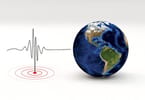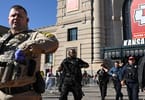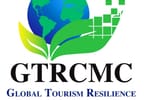Traditionally Norway has prided itself on being a place where nothing happens. Tucked away in a northern corner of Europe, Norwegians have been in the enviable position of watching others deal with mega acts of violence and even being able to pass judgment on the way others have handled acts of terrorism. Tourists know Norway for being the land of the Midnight sun and as the home of the Nobel Peace Prize. That idyllic picture, however, changed on July 22, 2011 when terror struck not only the Norwegian capital, but like a dagger to the heart, at a summer camp filled with youngsters. Needless to say, the whole world mourns with the people of Norway and the parents, families and friends of all those who have lost a loved one.
The total story of what happened in Norway will not become known for some time. Likewise it will take a while to determine what mistakes, if any, Norwegian policy makers may have committed, tourism officials need to start to examine the impact of this newest tragedy on the world’s travel and tourism industry.
From a tourism perspective, the one piece of “good news” is that the terror attacks were not aimed specifically at the travel or hotel industry.
Unless Norway is hit with a series of new attacks tourism and travel professionals should expect that the long- term economic impact on the travel and tourism will be similar to attacks in London and Madrid. The victims’ families of course will suffer forever. However, many travelers may tend to see this incident as an isolated case rather than as a pattern. As other news stories develop, if this incident holds true to form, then we can expect that this tragedy will move to the recesses of recent history. On the other hand each act of mega-violence makes travel appear to be a little less safe and risk-adverse travelers may suffer from a worldwide cumulative sense of travel unease. Furthermore, each act of terrorism ups the security precautions and these precautions tend to make the travel and tourism in some people’s eyes less appealing.
Despite what may be only a short-term tourism and travel impact, there are many lessons that the travel and tourism industry can learn from this tragedy. Among these lessons learned are:
-The tourism industry cannot ignore the issue of total tourism security, often called “tourism surety.” What happens in any nation impacts the entire industry no matter who is responsible or against whom the attack is launched. Furthermore, tourism leaders must be consistently on guard for copycat actions, Thus at this moment there is no way of knowing if an attack on a Norwegian summer camp may set off attacks at other summer camps in different parts of the world.
For this reason the tourism and travel industry must view the interaction and overlapping of tourism economics, with locale reputational factors and combine these with tourism safety and security. Tourism cannot afford a medical crisis or a food crisis, a natural disaster or a political disaster, conventional wars or acts of terrorism, crime and gang violence or narco-trafficking. Each of these threats is interconnected and in a world connected by both the Internet and twenty-four hour news reporting nothing stays for long in any one place. The bottom line is that tourists can chose where to visit and when to visit, and industry leaders need consistently need to remind themselves that all acts of crime and terrorism impact their industry.
-While acts of crime are still more common than acts of terrorism, it is terrorism, and particularly the kind that is specifically aimed at tourists, that has attracted a great deal of media coverage and scrutiny. The negative coverage caused by terrorism has cost the world’s tourism industries billions of dollars in lost revenues.
-The tourism industry can no longer afford to overlook its secondary components such as summer camps and rural retreats. The Norwegian terror attacks should remind everyone in tourism that the industry is not merely composed of high profile attractions, big city hotels, airlines and transportation centers. Tourism is a multifaceted industry that spans a wide gamut of industries from campgrounds to bus and rail terminals, from children’s summer camps to roadside inns.
-It is impossible to protect every aspect of the tourism industry but there is a great need to train tourism staff to be aware of warning signs. The whole concept of: “see something, say something” needs to become part of the tourism industry’s landscape. In the case of Norway, the fact that the supposed “police officer” was using a gun in a country where police do not carry guns should have been a warning sign that something was wrong.
-Terror and evacuations plans need to become a part of everyday life. Just as people have become accustomed to fire drills and in seismic locations, earthquake drills, so too is there a need to have a full set of protocols on what to do should a mass-crime or act of terrorism occur. For too long the tourism industry has taken the position that “if I do not see if then the problem will not occur.”
-Tourism leaders need to become accustomed to thinking out of the box. So much emphasis has been placed on airport and airline security that whole other areas of tourism have been left exposed. Tourism and security leaders have to go beyond fighting the last battle and begin to think about what parts of their industry form their weakest link. Terrorism is about creating surprises and tourism and travel leaders need to work toward protecting their industry by expecting the unexpected.






















